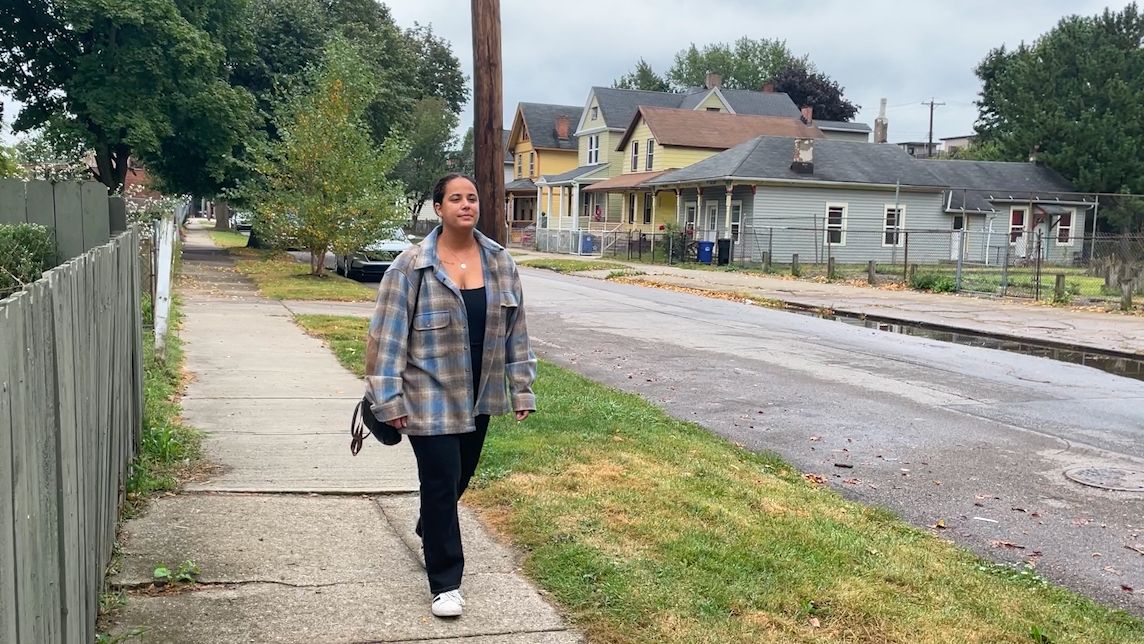CLEVELAND — The food system in the United States leaves many people across the country out of reach of grocery stores that sell fresh, affordable produce and healthy foods.
Earlier this year, the City of Cleveland added a local food systems strategies coordinator position to help come up with solutions locally.
Zainab Pixler, who was hired for the role, said she’s always been interested in food.
“I grew up in a family, in a home, where it was really important that we all ate dinner together and enjoyed meals together and really bonded over food,” Pixler said. “And, when I realized I could make a career out of food, I decided to.”
According to reports from cities across the country, including in Cuyahoga County, historically redlined and minority communities have fewer large grocery stores and more convenience stores that sell mostly junk food.
In 2018, the county’s supermarket assessment found 50% of Clevelanders don’t have easy access to fresh, healthy food, and of those people, 60% describe themselves as “non-white.”
The term for these areas has long been known as food deserts, but people working to expand food access are now using the term food apartheid to more accurately reflect the intention behind the country’s food systems.
“Food desert is an outdated term that implies that the area is lacking resources,” Pixler said. “It implies it’s a naturally occurring area. Food apartheid really takes in systematic racism, things like redlining, to really describe the policies and practices that were intentionally implemented to separate people from the resources.”
Pixler, along with several community organizers, pushed the city of Cleveland to create a food system strategies position, one of only 19 nationally.
Her role, funded by a two-year grant from the Ohio Department of Health, is to find ways to boost Cleveland’s economy by identifying gaps and opportunities in the city’s food system.
Pixler was hired for the position over the summer and has since been taking time to hear from community members about what they need in their neighborhoods.
She hears different complaints depending on who she speaks with.
One of the most common things Pixler said she’s heard from producers is difficulty with buying city-owned lots where they grow their food, so she’s spending time diving into policies with the Land Bank to help.
“I’ve also been hearing that food retail is essential, especially since we’ve had some pretty high-profile grocery store closures,” she said.
Angela Sayles, who helped advocate for the creation of Pixler’s role, is the CEO of the Little Africa Food Co-operative, a community Black-owned grocery store serving neighborhoods that don’t otherwise have easy access to fresh food.
“We know we’re being murdered at the hands of guns, but we’re also dealing with being killed through the food, and so let us come up with a solution, and a community Black-owned grocery store was the solution,” Sayles said.
According to the National Institute of Health, lack of access to fresh, nutritious food has been linked to an increase in diet-related diseases and health complications like diabetes and heart disease.
Little Africa partners with community gardens to expand education and access to urban agriculture for residents, something Pixler said she’d like to see more of in Cleveland.
“So this is a place that offers solace,” Sayles said. “It’s very good for mental health therapy to come and put your hands in the soil and the grass. It’s a very healing process.”
Pixler’s position is only guaranteed to be funded for the next two years, so she’s eager to start laying the groundwork, so food systems strategies will be prioritized moving forward.
“I’ve been very conscious that two years could come to an end at the blink of an eye,” Pixler said. “But I’m working very hard to make sure it’s clear that this work needs to continue.”
